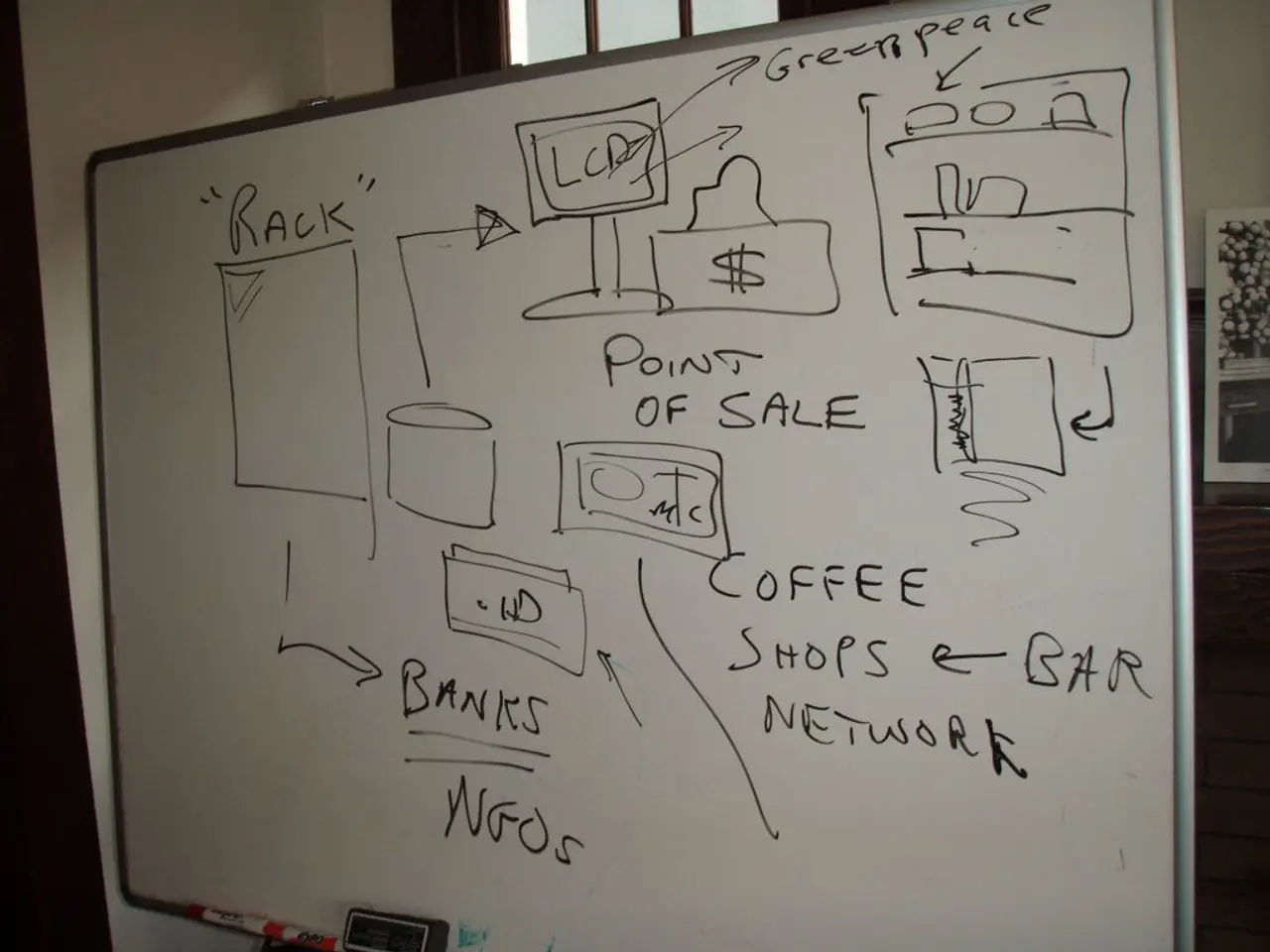"Accessible Through Quilts":how digital marketplaces revolutionized the automobile industry
In the rapidly evolving landscape of logistics and transportation in Russia, marketplaces have emerged as a significant force, shaping the industry in various ways. One of the most noticeable effects is the impact on pricing and working conditions for carriers.
Vaskanyan from NC Logistic and Ashuraliev from GK "Delo" have both highlighted the pressure on pricing that marketplaces exert on carriers. With marketplaces offering cheap or free delivery to attract customers, competition intensifies, leading to lower transport rates and decreased margins for individual transport providers and carriers.
Moreover, carriers often face difficult working conditions due to the need for speed and cost efficiency. This can result in pressure to accept lower pay, longer hours, or less favourable contractual terms. The rise of asset-light logistics models and increased use of third-party carriers contributes to these challenges, often transferring operating risks and costs to smaller carriers.
Despite this, the transportation and logistics market in Russia has grown significantly, exceeding 10 trillion Russian rubles in 2023. However, this growth occurs amid structural issues such as corruption, sanctions, and supply chain disruptions, which create bottlenecks and cost pressures that indirectly affect carriers.
Fuel costs have also increased due to geopolitical tensions, leading to higher operational costs for carriers. Marketplaces may pass some of these costs to carriers, further straining their profitability.
The Russian transport sector, including logistics, is grappling with corruption scandals and institutional instability, which hamper efficient operations and negatively impact carrier conditions.
Mikhail Koptiev, commercial director of the federal transportation company "Skif-Cargo", echoes these sentiments, stating that marketplaces create pressure on prices and working conditions, often leading to worse conditions for drivers.
Nikita Baranov, co-founder and director of strategy at logistics group TLS Group, adds that while marketplaces themselves may not engage in violations due to significant reputational risks, carriers may consider various ways to reduce transportation costs, potentially leading to actions that contradict legal norms.
Marketplaces are also striving to reduce costs by any means, including loading Chinese carriers' trucks or trailers for domestic transportation after completing an international trip, despite the ban on cabotage.
On a positive note, marketplaces are fostering market development by digitizing it and offering flexible delivery schemes. They have a significant share in last-mile deliveries, using both their own and hired transport.
Some marketplaces, such as Ozon and Wildberries&Russ, have launched their own logistics platforms and have long-term strategies for logistics development, including expanding their own fleets.
In conclusion, the rise of marketplaces in Russia has intensified competitive pricing pressure on carriers while also contributing to challenging working conditions due to the need for speed and cost efficiency. These pressures exist against a backdrop of rising fuel costs, geopolitical disruptions, and systemic corruption in the transport sector, collectively impacting carrier profitability and operational conditions.
[1] Source: Russian Federal Antimonopoly Service (https://www.fas.gov.ru/) [2] Source: Russian Ministry of Energy (https://minenergo.gov.ru/) [3] Source: Transparency International Russia (https://www.transparency.org.ru/)
In the midst of growing competition, technology-driven marketplaces in Russia are putting pressure on financial aspects of the logistics and transportation industry, leading to lower transport rates and increased operational costs for carriers, due to their pursuit of attractive pricing strategies to lure customers.
Marketplaces, while promoting digitization and fostering market development, are often accountable for contributing to the difficult working conditions faced by carriers, as a result of the need for speed, cost efficiency, and the rise of asset-light logistics models.




